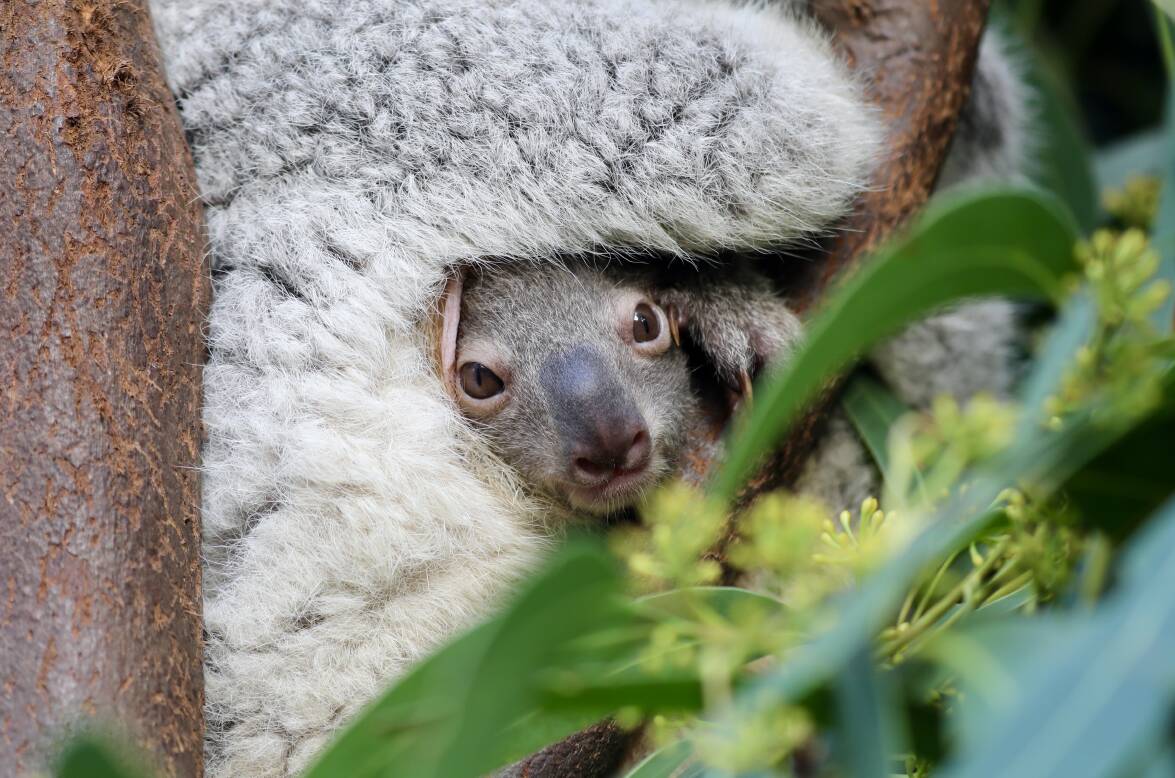
Elsa the koala has had her first joey.
Australian Reptile Park keeper Hayley Shute hand-raised Elsa, as her mother Irene was unable to produce milk.
"Thankfully both are happy and healthy koalas and Irene went on to have Elsa's little sister Anna," Hayley said.
Elsa has previously won hearts up close at the park and across the world through viral videos.
Visitors frequently spot Elsa at the park in a deep sleep or eating fresh leaves for lunch.
It did not take long for Elsa's popularity to reach new heights, with several videos of the fluffy koala going viral and being seen more than 15 million times.
Elsa's joey was the first to emerge from a pouch during this year's koala breeding season at the reptile park, which is at Somersby on the Central Coast
As well as being Elsa's "adoptive mum", Hayley is known as the park's "resident koala whisperer".
"It melts my heart to see Elsa thriving, considering the first time we met she was at risk of not making it. I look at her happy and healthy, now with her joey emerging from the pouch and I get a bit emotional that she's growing up."
She said Elsa had spread joy across the world and "raised awareness for koalas as a species in peril that needs our help now more than ever".
Koalas will become extinct in NSW before 2050 without urgent government intervention, a parliamentary report said in 2020.
The Australian Koala Foundation said last year that koalas are in rapid decline around Australia, with 30 per cent of the iconic species lost in just three years.
Australia's koala population was estimated in 2021 to be between 32,065 to 57,920 - down from 45,745 to 82,170 in 2018.
The 2019-20 bushfires contributed to this decline, while land clearing for farming, housing and mining has proven lethal to koala populations.
The reptile park said it continued to breed koalas to help boost the population.
Recruits Needed
Are you vegetarian? How about pescatarian? Do you consume minimal amounts of meat?
Researchers at the University of Newcastle are investigating the potential health benefits of following plant-based diets.
The impact of these dietary patterns are not well known in the Australian population, nor are there dietary guidelines around how to follow a healthy plant-based diet.
Lead investigator Grace Austin, a PhD candidate and dietitian from the School of Biomedical Sciences and Pharmacy, is recruiting over 100 adults from the Hunter Region to participate in the "plant-based diets for cardiovascular disease cohort study".
This study explores the nutritional profile of these dietary patterns and their effects on heart health.
If you are aged between 35 and 70, don't have cardiovascular disease and follow a pescatarian diet (fish-based), vegetarian (dairy and/or eggs only) diet or eat meat two times or less a week, contact Grace via email grace.austin@uon.edu.au or call 0422 650 262 to express interest.
In the Spotlight
Fred Saunders, of Waratah West, asks: "Have you seen the latest Spotlight advertisement?
"They say 'Great Home Sale' and what are they advertising? Sewing machines, curtain material and sewing accessories.
"Not a home for sale at all."
- topics@newcastleherald.com.au







